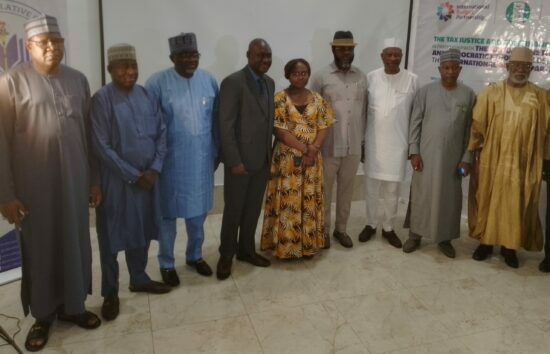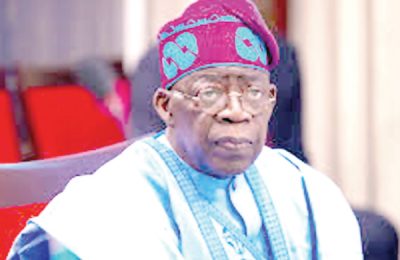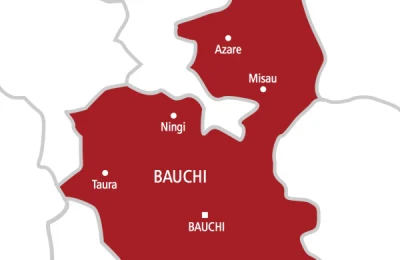Executive Director of Civil Society Legislative Advocacy Centre (CISLAC), Auwal Ibrahim Musa (Rafsanjani), on Monday, called for robust legislative instruments that will block leakages through tax incentives, which has led to the loss of over N40 trillion in revenue.
He gave the charge in Abuja, during the opening of a two-day sensitization and capacity-building workshop on “Identifying and strengthening legislative pathways for reforming tax expenditure governance in Nigeria” organized by CISLAC in collaboration with the National Institute of Legislative & Democratic Studies (NILDS).
“Nigeria is losing a lot of billion nairas to suspicious and dubious tax waivers, concessionaires, tax holidays, and what have you… But unfortunately, these resources are being diverted or stolen.

“Given that Nigeria is always going to borrow money, and even when we borrow it, it’s not being complied with based on our fiscal responsibility law.
“The projects that Nigeria always say they are borrowing money to do, we hardly see those projects being executed. So, we did not need to go and borrow money, when we had a lot of money that we should have utilized domestically. N40 trillion is a huge amount of money.
“Therefore, there’s no reason why Nigeria should continue to go and be borrowing money when we are losing a lot of money that we could have saved for development.

“The oil thefts have continued to happen in this country, the authorities are aware of that, but no serious action has been taken to block that.. therefore, money laundering and illicit financial flow are all part of what is crippling the economy.

“Currently, many factories have closed down because there’s no power and the environment which the business will also thrive is also marred with a lot of corruption. So, a lot of jobs are being lost on regular basis in this country, increasing the number of unemployed people, increasing the number of poverty in the country and therefore we believe that it is important as a responsible citizen, we should do everything possible to support the sincere efforts of government to block leakages,” he noted.
While noting that taxation remains the most viable and reliable fiscal policy tool for revenue mobilization towards sustainably financing development, he averred that Nigeria has “long explored a Tax expenditure regime to realize significant growth and development in pioneer industries, and foreign direct investment.
“In principle, tax waivers, concessions and exemptions are sound and ideal arrangements both as economic tools and from the viewpoint of competitive international trade. This is because local businesses/industries must be positioned to improve their fortunes and attain international competitiveness.
“However, the Nigerian case appears plagued with challenges, including abuses observable to the Nigerian public. According to the Global Tax Expenditure Database 2020 report, Nigeria had a Tax Expenditure of N5.84 trillion (3.8% of its GDP), just over 50% of its 2020 budget. Similarly, the Federal Government noted that the Tax Expenditures in 2021 amounted to N6.68 trillion, approximately 4 per cent of the GOP.
“Reports of indiscriminate waivers and concessionary approvals have all contributed to questioning this government initiative’s bearing and economic sustainability.
“The law regulating the granting of incentives places enormous discretionary powers to the Executive arm of government. The governance of the incentive regime is also, at best, opaque and lacks the scrutiny necessary to guarantee transparency and accountability in the process, leading to a situation where the supposed benefits are not optimized. The offer of these incentives, though put in place presumably to grow the economy, is not without associated costs.
“Recent studies have shown that investors do not see these incentives as key factors to attract inbound investments and tend to be injurious to the economies of implementing countries in the long run. This is as it is seen to reduce the propensity to generate needed resources for providing socio-economic services, encouraging local industrial revolution and gross domestic production, growth and national development.
While acknowledging that the 10th Assembly has reportedly launched over 50 probes into the alleged mismanagement of funds and other infractions by MDAs, including the recent House probe into the N14 trillion revenue loss to tax incentives, waiver abuses by public institutions and companies benefitting from such incentives, he lamented that these investigative hearings “are yet to yield any significant prosecutorial actions and/or outcomes as the National Assembly lacks the constitutional power to prosecute erring officials.”
In his remarks, Deputy Chairman, of the House Committee on Aids, Loans & Debt Management, Hon. ‘Lanre Okunlola, underscored the need for relevant Standing Committees in the Senate and House to strengthen oversight function, conduct mandatory review and impact assessment of the tax system.
He observed that these provisions for tax incentives are informal exemptions, deductions and credits designed to promote specific policies and objectives so that our economy can grow again.
In his keynote address, the Director General of the National Institute of Legislative and Democratic Studies (NILDS), Professor Olanrewaju Sulaiman, observed that: “despite abundant opportunities, Nigeria has been confronted with a revenue challenge amidst a rising debt profile. Yet, all sectors of the economy require increased government funding to address lingering challenges.
“Amidst this need for increased public spending, tax expenditures offer an opportunity to fund national development. As reported in a publication by the United States Congressional Research Office, tax expenditures are exclusions, deductions, credits, and net preferential rates in the federal tax system that cause government revenues to be lower than they would otherwise be for any given structure of tax rates.
“The United States Congressional Budget Act of 1974 simply refers to tax expenditures as revenue losses attributable to provisions of the federal tax laws that allow for special exclusions and exemptions. While these exemptions encourage business growth, they may be considered alternatives to other policy instruments, such as spending or regulatory programs.
“Therefore, as the government continues to seek new ways of reforming the fiscal policy space, this 2-day workshop presents an opportunity for stakeholders to engage in ways to harness the opportunities that tax expenditure presents for the nation’s development.
“Experience from OECD countries shows legitimate reasons for tax expenditures. They are used to promote business growth, encourage job creation, and reduce the burden tax producers place on consumers by transferring the ‘tax burden’. However, there are challenges. Tax expenditures are politically tempting as they may not be subject to regular scrutiny. In most cases, tax exemptions, for instance, are issued by policy statements. Overseeing such a space may be cumbersome, as the benchmark for such oversights is not provided for in a legislative framework.
“The debate over whether or not a legislature can oversee policy is another reason why tax expenditures can slide under the legislative lens. But again, issues around tax expenditures are not binary. It requires clear understanding and proper contextualization and understanding.
“Fairness, justice, and equity are issues related to tax expenditures. While big firms receive tax waivers to continue operations, poor people continue to pay higher prices for goods and services. Furthermore, it appears that over the years, tax policy has been aimed at taxing the poor rather than the rich. Hence, finding a fair balance is crucial,” he noted.
In his address, the Country Manager, of the International Budget Partnership (IBP), … affirmed that: “many countries like Nigeria are struggling with the triple challenge of debt, widening inequities and massive recovery needs following the COVID pandemic.
“Promoting an equitable tax system will help countries to mobilize revenue and provide better services for all Nigerians. Our tax policies, therefore, need to be fair and transparent. Revenue generated should benefit many Nigerians rather than favouring a few. This is the objective of tax equity. It is estimated that tax cost Nigeria over 6 trillion in 2021.
“This means that revenue that would have gone to the provision of public services is forgone. While the government is losing revenue through tax expenditure, vulnerable groups, especially those in the informal sector, are subjected to harassment and intimidation through multiple taxation at the subnational level.
“The role of the legislature in improving equity in our tax system cannot be overemphasized. I call on the Distinguished Senators, Honourable Members and Clerks of the NASS to prioritise this very important conversation and take up the challenge of reforming our tax system for improved equity.”
READ ALSO FROM NIGERIAN TRIBUNE








